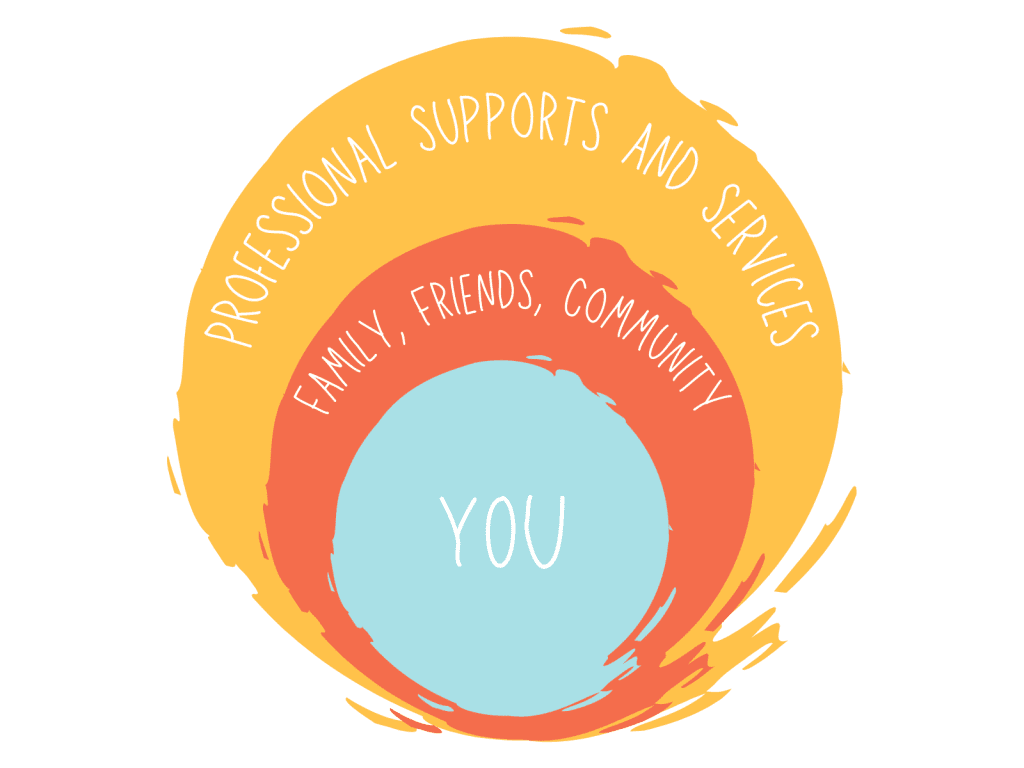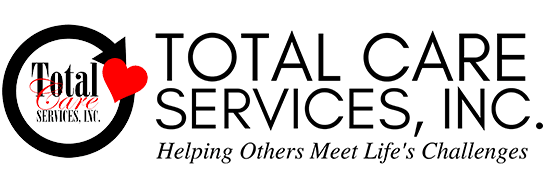Transitioning Youth
Maryland - CCS
Congratulations! You have reached an important milestone. Transitioning from school to adulthood is an exciting time. But there is a lot to consider as you begin to make decisions for yourself and plan for your future.
As a Transitioning Youth (TY), you want and deserve the same opportunities and experiences as anyone else your age. You might be thinking about living on your own, taking college classes, or finding a job. With TCS’ Transitioning Youth services, our Coordinators of Community Services (CCS) are here to help make your transition from high school as smooth as possible. We’ll connect you to resources and information so you can discover what’s out there.
What is Transition Planning?
Transition Planning helps students with intellectual and developmental disabilities prepare for life after high school. It is a process that takes place while you’re still in school, generally between the ages of 14 and 21. Transition services are available to you throughout the transition planning process. The earlier you start making your plans, the smoother your transition will be.
Here is a simple timeline to help you stay on track:
- AGE 14: Include a transition plan as part of your Individualized Education Plan (IEP); apply for services with DDA and DORS.
- AGE 18: Apply for Supplemental Security Income (SSI) and Medical Assistance.
- AGE 19: Explore post-secondary education options; align your IEP with your transition plan.
- AGE 20: Contact, interview, and (by your final year) choose your provider. We suggest meeting at least 3 to 4.
- AGE 21: Apply for DDA services through the Governor's Transitioning Youth Initiative.
Turning 21 is the most important time of your transition planning process. Your 21st birthday marks the start of your final transition year – the year you leave high school and enter adulthood.
Why is turning 21 important?
You are now eligible to apply for the Governor’s Transitioning Youth Initiative (GTYI). Your eligibility runs from your 21st birthday to your 22nd birthday. Don’t worry if the date of your graduation is after your 21st birthday. In that case, you will continue to be eligible for one year after the date of your graduation.
What is the Governor’s Transitioning Youth Initiative?
GTYI is a partnership between the Developmental Disabilities Administration (DDA) and the Division of Rehabilitation Services (DORS). Through GTYI, DDA and DORS work together to provide access to supported employment, day services, and other transition services to students who are eligible. You can explore:
- Post-Secondary Education options
- Employment Training
- Employment
- Day/Vocational Services
- Independent Living
- Community Participation
To find out more, visit the DDA's Transitioning Youth home page.
Why does GTYI matter?
Applying to GTYI as a Transitioning Youth is important because it gives you a special category of eligibility and priority for DDA. Without this special category, you might have to wait many years to receive services. You can avoid that lengthy waitlist by applying during this window.
To qualify, you must be found fully eligible as developmentally disabled. This means:

How do we help during your final transition year?
During your final transition year, your CCS will work closely with you to:
- Identify your circle of support
- Educate you about available services and supports
- Support you in exploring your options
- Connect you with services, such as applying for Medical Assistance (MA) and Supplemental Security Income (SSI)
- Connect you with providers
Check out the next tab How do we help? to learn more.
How do we help?
Your CCS will help you navigate and explore all the resources, services, and supports available. They will provide you with information and support so you can make the best choices for you. We offer guidance, support, and help with:
Creating a circle of support
Your CCS will help you identify family, friends, caregivers, and other people in your life who you consider to be part of your team. These are people who understand your goals, wants, and needs and will support you in achieving them. Altogether, this group of people make up your circle of support. Count us in!

Exploring your options
Along with your circle of support, your CCS will guide you into adult services with your hopes, dreams, and preferences in mind. We'll help you create a plan for life after high school based on your vision for your future. We support you in looking for meaningful work, skills training, and exploring living on your own. We understand that entering adulthood is a process, and we’re here to walk you through it.
Services and supports that may be available to you.
Meaningful Day Services
Meaningful Day Services support people who are interested in learning skills on a path to competitive integrated employment or those who are already working. Meaningful Day Services may include:
- Employment Services
- Career Exploration Services
- Community Development Services
- Day Habilitation – Traditional Services
Support Services
Support Services enable people to accomplish tasks that they would normally do for themselves if they did not have a disability. Support Services may include:
- Assistive Technology
- Behavioral Support Services (BSS)
- Environmental Assessment
- Environmental Modification
- Family and Peer Mentoring Supports
- Family Caregiver Training and Empowerment
- Live-In Caregiver Supports
- Nursing Support Services
- Participant Education, Training, and Advocacy
- Personal Supports
- Remote Support Services
- Respite Care
- Support Broker
- Transition Services
- Transportation Services
- Vehicle Modifications
View the Summary of Waiver Services for more information about each of these services.
Residential Services
Residential Services are only available to people who are in immediate crisis due to loss of caregiver or elderly caregiver, risk of homelessness or eviction, or if the person has extreme behavioral concerns that put them at risk of harming themselves or others. In these situations, options may include: Community Living Group Home, Shared Living, or Supported Living.
Connecting you to services
Once you’ve identified the services and supports that fit your needs, wants and goals, the next step is getting connected to them. Your CCS has experience with the application processes and will support you in gathering, preparing, and submitting the paperwork and documentation you need to apply to receive services and supports. Agencies and programs that support transition include:
- Developmental Disabilities Administration (DDA)
- Division of Rehabilitation Services (DORS)
- Medical Assistance (MA)
- Social Security Administration (SSA/SSI)
Connecting you to providers
There are many different agencies licensed to provide residential and day services through the Developmental Disabilities Administration (DDA). We recommend that you visit and interview at least 3 to 4 adult service providers during your transition planning process. Your CCS will provide information about all the providers available so you can choose the one that works best for you.
Check out A Guide to Choosing Your Provider for some questions to help you consider what's important to you as you begin your search.
6 Tips for a Smooth Transition
- START EARLY! Transition planning begins as early as age 14. To get started: include a transition plan in your IEP, apply for DDA services, and contact DORS.
- GET ORGANIZED! Create a transition portfolio - gather paperwork for your applications and provider visits, such as: birth certificate, financial documents, medical records, and school records. Your CCS can help you determine what is needed.
- EXPLORE! Attend a variety of transition events, fairs, and information sessions both online and in your community. Ask your school for information and, of course, talk to your CCS!
- IT'S OKAY TO BE CHOOSY! We recommend visiting and interviewing at least 3 to 4 DDA adult service providers in your local area before you make your selection. See our Guide for Choosing a Provider.
- YOU'RE GOING PLACES! Apply for a Maryland Photo ID card and consider your transportation needs; if appropriate, apply for MetroAccess or MTA MobilityLink (paratransit services).
- DID YOU KNOW? Most community colleges have a Disabilities Support Services Department. Community college courses are not just for those students pursuing a degree either. You can also take non-credit courses that could lead to careers and/or certifications.

